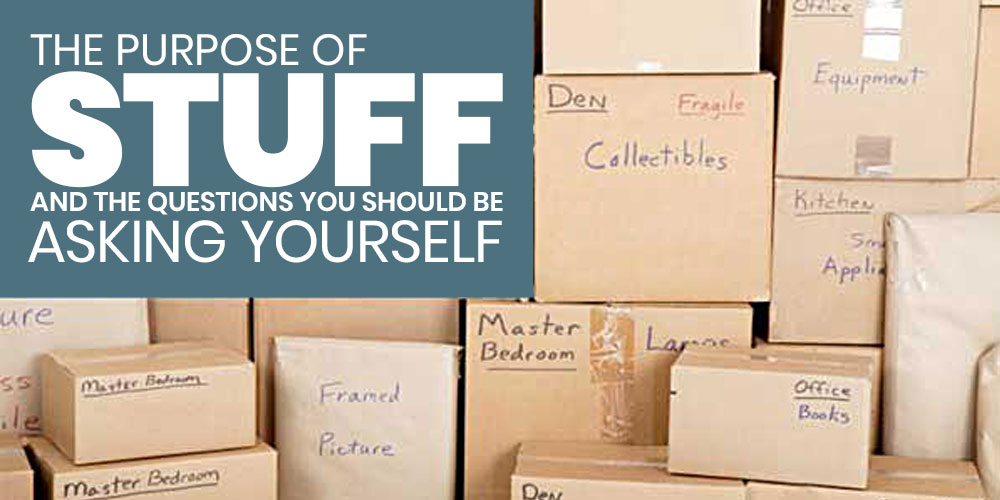
Recently I came across a post about “The purpose of stuff” and I thought it was a really great way of thinking about the items in our lives. To summarize, we have all this stuff in our lives and they largely fall into four distinct purposes: Functional, Aesthetic, Nostalgic, and Dream Placeholders.
I liked this line of thought and realized that this frame work is useful, but it contains a lot of pitfalls. For example: Functional. There are a lot of things that could be deemed functional in our lives. Kitchen gadgets are the first thing that comes to mind.
Many of us have drawers stuffed with gadgets that will peel garlic, steam broccoli and core an apple. The kitchen gadget industry has come up with a solution for every possible problem. The truth is, much of these purpose built items don’t make us better cooks and most of these things serve an outlier need. How often do you actually core apples?
So I wanted to offer up some questions that can help you navigate around the pitfalls of each of these.
Functional
There are things that we simply need to get through our daily lives. We need a bed to sleep on, a fridge to keep food in, a towel to dry our hands and so on. Much of what is in my tiny house has a very strong functional purpose, but it’s easy to say we NEED something. What most people fail to do is examine motivations and take a step back and understand the motivations.
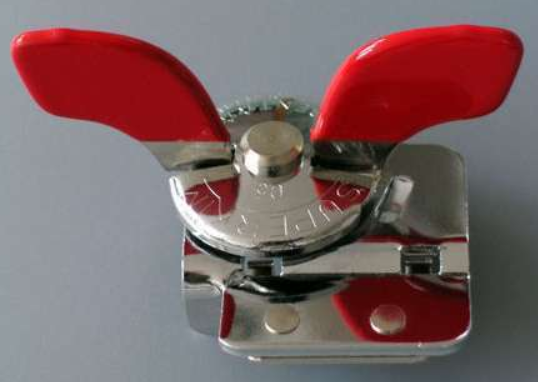 A perfect example for me was: do I need a washer and dryer? I was convinced I did, but I didn’t know how I was going to fit it in my house. It was then I took a step back and said “I hate folding clothes, why would I want to have a thing in my house that caused me to do things I hate doing?”
A perfect example for me was: do I need a washer and dryer? I was convinced I did, but I didn’t know how I was going to fit it in my house. It was then I took a step back and said “I hate folding clothes, why would I want to have a thing in my house that caused me to do things I hate doing?”
Now it would be easy to say, well everyone wears clothes, clothes get dirty, you need to wash them, therefore, you need a washer. That is a pretty logical argument, it’s how most houses are built, and how it’s been done for a long time. But I was willing to ask myself, what if I didn’t have a washer/dryer? So I said, well maybe there is someone that I could instead pay to do my laundry in lieu of buying an expensive compact washer/dryer. Low and behold I found a company that will come to my house, take my laundry, wash/dry/fold, then bring it back to me… for $15!
Ask yourself these questions around functional items:
- What assumptions am I making about this item and the “need” it fills?
- What are other ways I could achieve this same end result?
- Is there something I could use instead that does this in a smaller form or is multi-purpose
- How often do I actually do this function?
- What if I didn’t have this thing? What would the impact be?
Aesthetics
There is a great quote from William Morris: “Have nothing in your house that you do not know to be useful, or believe to be beautiful.” Aesthetics is very important in a small space and for minimalists, we have very little so we must be intentional with all our decisions. When it comes to minimalists choosing beautiful things for our lives, we need to be discerning. This is the case where less is more, not out of some dogmatic adherence, but by have a few beautiful things we bring focus and honor to their purpose: enrichment through beauty.
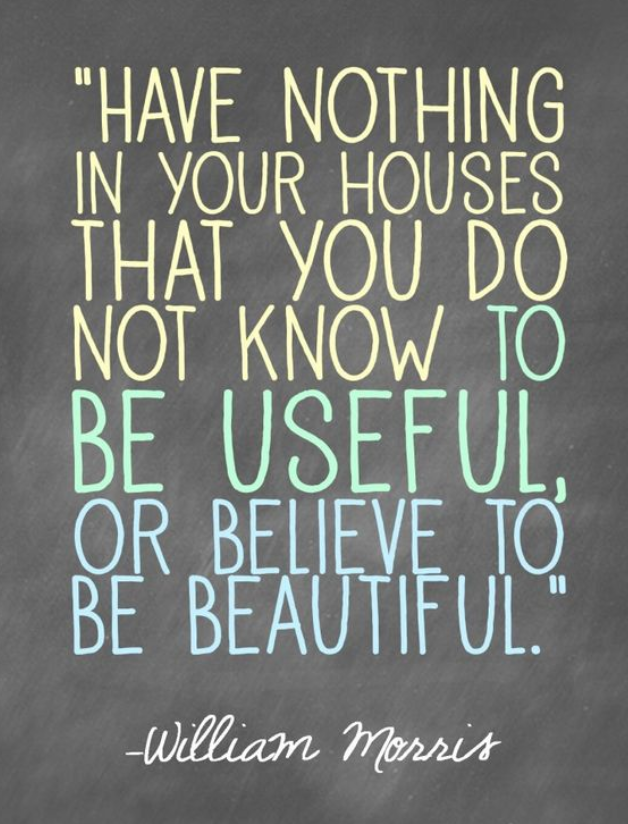 The trouble with aesthetic items we can have too many of them, which leads us to have a cluttered feel. Focus on a few select things that allows you to enjoy them without being distracted by other things. If you find yourself not appreciating it’s value each day, it might be a sign it needs to go.
The trouble with aesthetic items we can have too many of them, which leads us to have a cluttered feel. Focus on a few select things that allows you to enjoy them without being distracted by other things. If you find yourself not appreciating it’s value each day, it might be a sign it needs to go.
Ask yourself these questions around aesthetic items:
- Where will this item have a home, a spot, in my house?
- How do you want your space or home to feel? How does this item help you achieve that goal?
- Is there enough space to draw your focus on this item each day?
- What items will distract you from enjoyment of this item?
Nostalgic
This is the most difficult of them all, because we are human beings and as such, we are inherently laden with flaws and complications. Nostalgia is a powerful force of the human experience and its valuable, healthy and an important part of life. There are times when it can weigh us down.
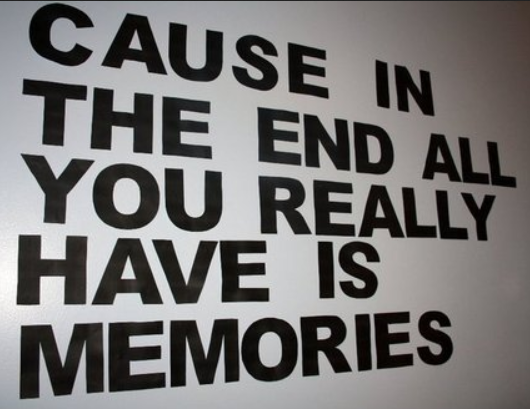 If you ever have watched a show of Hoarders, you hear over and over again how people don’t want to throw something away because it reminds them of their late spouse, passed away family member or some other part of their past. While hoarding is an unhealthy expression of this need to connect with the past, we can all relate to these feelings.
If you ever have watched a show of Hoarders, you hear over and over again how people don’t want to throw something away because it reminds them of their late spouse, passed away family member or some other part of their past. While hoarding is an unhealthy expression of this need to connect with the past, we can all relate to these feelings.
I spent a significant amount of time sifting through my memory boxes and was able to organize into a few albums and boxes. I then placed the whole thing into a large waterproof container for safe keeping. I think what I really need to do is get better is spending a little more time enjoying these memories.
Ask yourself these questions around nostalgic items:
- Is it possible to keep this memory from some other prompt?
- Is this a healthy memory to keep coming back to?
- Would a picture of the item suffice?
Dream Placeholders
I have a soft spot for nostalgic items, but when it comes to items that are place holders for our dreams, hope and even fantasies, I draw a pretty hard line. Dream placeholders are things that nod to a life we wish to live. They are things that we want in our lives, but we don’t have them, so we instead have things that remind us of that. Dream placeholders are toxic. Period.
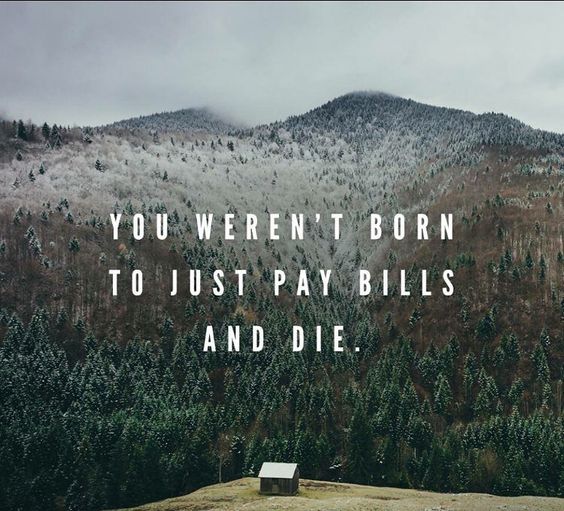 We should have goals. The difference between goals and dreams is that we work towards goals. We remind ourselves that we don’t have the dream but enjoy thinking about it.
We should have goals. The difference between goals and dreams is that we work towards goals. We remind ourselves that we don’t have the dream but enjoy thinking about it.
This is the difference between someone saying they hate their job and going home only to do it all over again, versus a person that works 9 to 5, only to come home and work on their side hustle until midnight. It is the difference between people who say they want to live in a tiny house and the people who say I’m going to do it and are building their dream home weeks later.
Dream placeholders can be toxic. Living this lifestyle is one of purpose, of intention and of pursuit of your best life. If you can’t actively pursue something, then it’s best to come to terms that it will not happen and move on.
Ask yourself these questions about Dream Placeholders:
- What have you done in the last week to achieve this dream?
- Why haven’t you achieved this already and are you creating excuses?
- Does this item serve a function in getting you closer to your goals?
- Should I lay this dream to rest and move on?
Your Turn!
- How do you make sure the things in your life are meant to be there?
- What tricks do you use to keep down clutter?
Good article! Thanks!
This is a great post Ryan, I love how much deeper you went with each topic. Nowadays Sporty and I really think long and hard before buying anything for our home. It’s amazing how little you can get by on. I realise we’re being a little extreme (by some people’s standards) by only having two cups, two glasses and two teaspoons etc. (so far we still don’t have forks or butter knives), yet we’re happier now than we’ve ever been.
Thanks for including my post here btw, I appreciate it! 🙂
Your right. I have a lot of functional items in my drawers that I only use maybe one or twice a year and quite frankly, could modify something else to do the same job. How tied in we get to having just the right tool for the job when we did very well without it. Time to clean out the drawers
“low and behold” is incorrect
you mean: lo and behold.
“low” means: less than average in height, amount etc
“lo” (from Middle English; 18th century) means: “look and see”
wow!
What about arts, crafts and hobbies? I enjoy many tactile hobbies that require physical items. I do them in cycles – complete a picture, complete a quilt top, complete bracelets, complete wooden painted crafts, etc. I also write and play an instrument. Additionally, I write curriculum for science experiments. I know that is a lot of stuff – but I can’t very well buy it all over again when I decide to work on it. I have sold each of these – except the quilts (my newest hobby). I look forward to having time for all of these now that I am retired – but hate the clutter. Any suggestions?
Thanks
While I like how you went into depth on these topics I have to disagree vehemently about Placeholders. There are things in life that I’d love to do but I will never be able to do them. This includes visiting Asia, and Crete and have a flower garden. Having a picture book of beautiful flower gardens is a way for me to enjoy them without being attacked by pollen. Having a picture book of the places I want to visit is a way I can visit them when I want to. I’m not rich and even if I went tiny and actually found a place to legally park my home, I probably would never save the kind of money needed to take the world cruise I’d love to take. And even if I could, these books remind me of the dream and may motivate me to do what I need to get there. — On the other hand, my cook books are the kind of Dream Placeholders that don’t need to stay with me. I dream of making all sorts of awesome dishes in those books, but there is a minuscule chance I ever will. Those Placeholders could and will go. They are actually serving a purpose right now in my bigass home: hiding the back of my stove.
I think “dream placeholders” are more like the paraphernalia of an activity, lifestyle etc that you aren’t actually going to engage in. Like a snowboard or a saddle, not a picture book. The latter is actually suggested in the article as a healthy alternative to keeping superfluous things